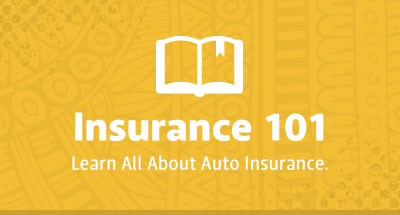Minimum Liability vs. Full Coverage in Illinois: What's the Difference?

Choosing the right car insurance may feel difficult to navigate, especially with terms that can be unfamiliar to the average person. Some common terms you might find while shopping for auto insurance are "minimum liability" and "full coverage.”
For drivers in Chicago and the surrounding areas, understanding these insurance options may be crucial to driving without incurring expenses from certain accidents. Here, we’ll outline the difference between minimum liability and full coverage auto insurance, what these coverages can help cover, and how costly they may be in Illinois.
Understanding liability insurance
Liability coverage is a type of insurance that may cover certain costs if you're at fault in an accident. Depending on your coverage limits, this insurance can help pay for damages to a third party’s vehicle and injuries you cause to others from a collision. Having the minimum liability coverage in Illinois is required by law.
As of March 2025, here's what the state mandates:
- Bodily injury liability: $25,000 per person and $50,000 per accident
- Property damage liability: $20,000 per accident
Illinois also mandates that all drivers have uninsured motorist coverage alongside minimum liability coverage. The state requires:
- Uninsured motorist coverage: $25,000 for bodily injury per person and $50,000 for bodily injury per accident
While liability insurance can help pay for damages to someone else’s vehicle when you’re at fault, this insurance won’t cover repairs to your own vehicle or your own medical expenses from an accident.
Understanding full coverage insurance
Full coverage does not mean that it covers every accident. The reality is, “full coverage" isn't a specific type of insurance but rather a term that typically describes a combination of coverages.
A full coverage auto insurance policy usually combines liability, collision, and comprehensive coverage, which may help pay for a wider array of accidents than liability coverage alone. If you’re unfamiliar with collision and comprehensive coverage, here’s what each can help cover:
- Collision coverage: This can help pay for repairs to your car after an accident, regardless of who’s at fault.
- Comprehensive coverage: This insurance may cover repairs to your vehicle from non-collision incidents like vandalism or weather damage.
Though it’s not mandated by Illinois, opting for full coverage may offer you several advantages:
- Coverage for a wider range of risks: Full coverage can help pay for expenses that liability insurance solely does not, such as damage to your own vehicle after an accident, theft, and vandalism.
- Minimizing expenses: Purchasing full coverage may help you avoid paying significant costs out of pocket after a covered accident.
If you’re wondering if you should opt for full coverage, here are some scenarios where this purchase may be advantageous to you:
- If you have a newer car
- If you don’t have extra money to pay for vehicle repairs out of pocket
- If you live in areas with higher risks for theft, such as a metropolitan area like Chicago
- If your area experiences severe weather
Though it’s not required by the state, having a full coverage auto insurance policy may be able to save you money in the long run.
Costs of liability vs. full coverage in Illinois
If you’re looking for a policy with Illinois minimum liability coverage only, it will typically be less costly than a full coverage policy. This is because a full coverage policy is a combination of coverages, which may be pricier than solely having liability insurance.
The types of coverage you purchase may not be the only factor in your insurance premium. If you live in Illinois, there are many components that may influence the cost of your insurance rate. These may include:
- Age: Younger drivers may face higher rates.
- Driving record: A clean history may lead to lower insurance costs, while accidents and moving violations may increase them.
- Location: Urban areas like Chicago may have higher premiums due to factors like higher theft and insurance claim rates.
- Vehicle type: Luxury or electric vehicles may be more costly to insure.
- Deductible amount: Choosing a higher deductible can lower your premium but may result in paying more out of pocket when an accident occurs.
While purchasing minimum liability insurance meets Illinois' legal requirements and is typically more budget-friendly, it won’t cover repairs and damage to your vehicle. On the other hand, full coverage may help cover a wider array of damages to your car, but your premium may be more costly. Understanding terms like minimum liability and full coverage can help you decide what coverage you need on your auto insurance policy.
Now that you have a better understanding of these coverages, you may be ready to purchase or update your policy. Call Illinois Vehicle Insurance Agency, LLC (Illinois Vehicle) today at 1-630-581-4805 to get a free personalized quote. Our experienced agents can help you find a policy that aligns with your needs and budget.
Disclaimer:
This material is for general informational purposes only. The products, services, and discounts referenced herein are not available in all states or from all companies. All statements are subject to the terms, exclusions, and conditions of the applicable policy. In all cases, the actual language of the policy contract prevails. Coverage is subject to individual policyholders meeting the insurer's underwriting qualifications and state availability. Other terms, conditions, and exclusions may apply.






